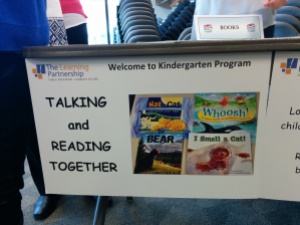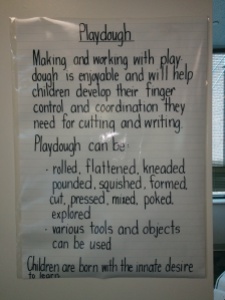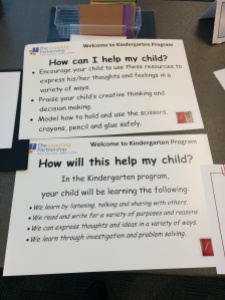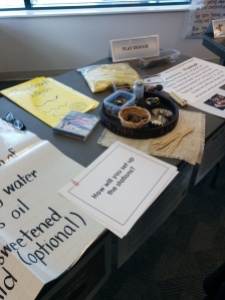Our Welcome to Kindergarten™ program helps prepare pre-kindergarten children for a positive start to their school journey. Parents/caregivers and their children attend orientation sessions at their neighbourhood school where they receive early learning and literacy resources, and learn how to use them at home. The orientation helps create the foundation for positive relationships between parents, teachers and community agencies that sets the stage for a smooth transition to school and future success.
The Welcome to Kindergarten program is a unique parent engagement strategy that brings together parents, children, schools and community service agencies to achieve the goal of giving parents/caregivers the strategies, resources and all the support necessary to make early learning activity and play a priority in the home – to prepare the child for a fun and successful first year in school.
I will be participating in several WTKs this spring, and was very curious to learn more about this exciting program. Here are a few interesting nuggets that I took away from the workshop (along with some largely unrelated and potentially confusing photographs for visual appeal):
- 1 in 4 Canadian children start kindergarten without being fully prepared, which puts them at risk of not getting the most out of their school experience.
- Parents and caregivers are a child’s first and most important teachers. As educators and literacy specialists, our role is to support caregivers and provide them with the tools and resources they need to succeed.
- Play! Children learn best through play, both structured and unstructured. Unfortunately, play can be seen as frivolous or unimportant, when it is actually one of the most important parts of a child’s development.
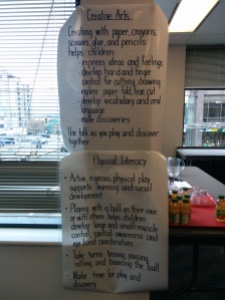
- Supporting early literacy doesn’t have to be complicated, or expensive. Playdough can easily be made from common household ingredients, picture books can be borrowed for free from the library, and scrap paper and crayons can help build the finger control and coordinatoin needed for writing.
- The world is a classroom! Cooking dinner can be an opportunity to explore math through measurement, while a walk through the park can introduce nature, the seasons and more. Every moment can be a teachable moment!
I left the workshop feeling super inspired, energized and ready to go! Early literacy is my passion, and I’m so thankful that I get the opportunity to work in this exciting, rewarding and meaningful field!
